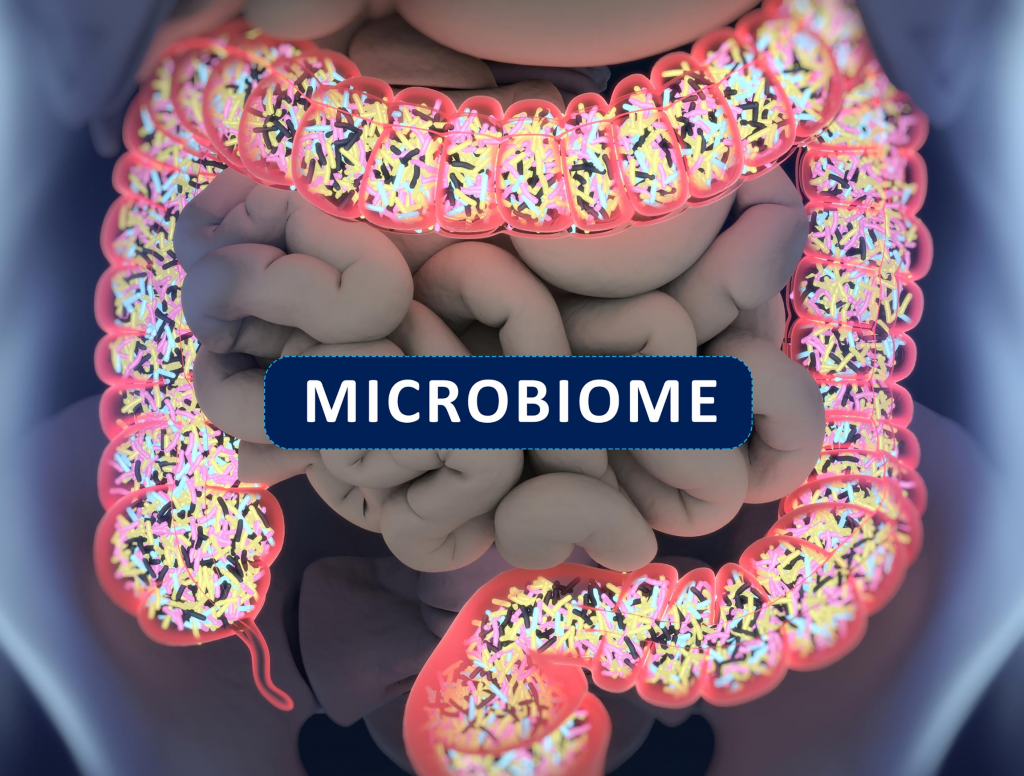
The role of gut health in your overall health and how to improve it with probiotics and prebiotics
Your gut is not just a place where food is digested and absorbed. It is also home to trillions of microorganisms, collectively known as the gut microbiome, that play a vital role in your health and well-being. The gut microbiome influences your immune system, metabolism, mood, brain function, and even your risk of developing certain diseases. Therefore, maintaining a healthy and balanced gut microbiome is essential for your overall health.
But how can you improve your gut health? One of the most effective ways is to consume probiotics and prebiotics, which are beneficial for your gut microbiome. Here is what you need to know about them and how to include them in your diet.
What are probiotics and prebiotics?

Probiotics are live microorganisms that can confer health benefits to the host when consumed in adequate amounts. They can help restore or maintain the balance of the gut microbiome, especially after disruptions caused by antibiotics, infections, stress, or poor diet. Probiotics can also modulate the immune system, produce beneficial substances, prevent the growth of harmful bacteria, and enhance the intestinal barrier.
Prebiotics are non-digestible substances that selectively stimulate the growth and/or activity of beneficial bacteria in the gut. They can act as food for the probiotics and help them thrive in the gut environment. Prebiotics can also improve the absorption of minerals, lower the pH of the colon, and reduce inflammation.
What are the sources of probiotics and prebiotics?
Probiotics can be found in fermented foods such as yogurt, kefir, sauerkraut, kimchi, miso, tempeh, kombucha, and pickles. They can also be taken as supplements in the form of capsules, tablets, powders, or liquids. However, not all probiotics are the same. Different strains of probiotics have different effects on the body. Therefore, it is important to choose the right probiotic for your specific health condition or goal. You can consult your doctor or a nutritionist for advice on which probiotic to take.
Prebiotics can be found in many plant-based foods that contain dietary fiber such as fruits, vegetables, grains, legumes, nuts, and seeds. Some examples of prebiotic-rich foods are bananas, apples, onions, garlic, leeks, asparagus, artichokes, oats, barley, wheat bran, flaxseeds, almonds, and pistachios. You can also take prebiotic supplements that contain specific types of fiber such as inulin, fructooligosaccharides (FOS), galactooligosaccharides (GOS), or xylooligosaccharides (XOS).
How much probiotics and prebiotics do you need?
There is no definitive answer to how much probiotics and prebiotics you need to consume daily. The amount may vary depending on your age, health status, dietary habits, and personal preferences. However, some general guidelines are:
- For probiotics: Aim for at least 10 billion colony-forming units (CFU) per day from food or supplements. You may need more if you have a specific health condition or if you are taking antibiotics. You can also try different strains of probiotics to see which ones work best for you.
- For prebiotics: Aim for at least 5 grams of prebiotic fiber per day from food or supplements. You can gradually increase your intake up to 20 grams per day if you tolerate it well. You can also try different types of prebiotics to see which ones work best for you.
What are the benefits of probiotics and prebiotics?

Consuming probiotics and prebiotics can have various benefits for your health such as:
- Improving your digestion and preventing or treating gastrointestinal disorders such as irritable bowel syndrome (IBS), inflammatory bowel disease (IBD), constipation, diarrhea, bloating, gas, and acid reflux.
- Enhancing your immune system and protecting you from infections such as colds, flu, urinary tract infections (UTIs), vaginal infections, and Helicobacter pylori (H. pylori).
- Supporting your mental health and mood by modulating the gut-brain axis and producing neurotransmitters such as serotonin and dopamine.
- Reducing your risk of obesity and metabolic syndrome by regulating your appetite, blood sugar, cholesterol, and inflammation.
- They are preventing or treating allergies and asthma by modulating the allergic response and reducing inflammation.
- Promoting your skin health and preventing or treating skin conditions such as acne, eczema, psoriasis, and rosacea.
What are the possible side effects of probiotics and prebiotics?
Probiotics and prebiotics are generally safe and well-tolerated by most people. However, some people may experience mild and temporary side effects such as:
- Gastrointestinal discomfort such as bloating, gas, cramps, or diarrhea. This is usually due to the adjustment of the gut microbiome to the new microorganisms or fibers. You can reduce these symptoms by starting with a low dose and increasing it gradually. You can also take probiotics and prebiotics with food or water to ease the digestion.
- Allergic reactions such as rash, itching, swelling, or difficulty breathing. This is rare but possible if you are allergic to any of the ingredients in the probiotic or prebiotic product. You should stop taking it immediately and seek medical attention if you have any signs of anaphylaxis.
- Interactions with medications or supplements such as antibiotics, antifungals, immunosuppressants, or blood thinners. Probiotics and prebiotics may affect the absorption or efficacy of these drugs. You should consult your doctor before taking probiotics or prebiotics if you are on any medication or supplement.
Conclusion
Your gut health is crucial for your overall health. Probiotics and prebiotics can help you improve your gut health by supporting your gut microbiome. They can also provide various benefits for your digestion, immunity, mood, metabolism, allergy, and skin. You can get probiotics and prebiotics from food or supplements. However, you should choose the right type and amount for your specific needs and goals. You should also be aware of the possible side effects and interactions of probiotics and prebiotics. If you have any questions or concerns about probiotics and prebiotics, you can talk to your doctor or a nutritionist for guidance.